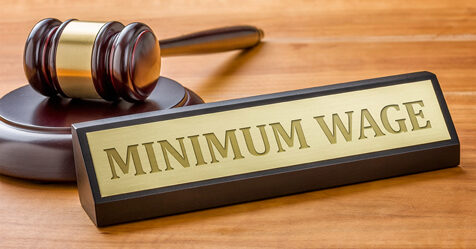Air Travel Banned, Airlines Ramp Up Cleaning Protocols Amid Coronavirus
Southwest, United, Delta detail cleaning protocols to assure passengers
Hours after the World Health Organization (WHO) declared the novel coronavirus outbreak a pandemic on Wednesday, President Donald Trump announced a ban on European air travel to the United States. The ban does not include air travel from the United Kingdom.
In response to how air travel impacts the spread of the virus, airlines have responded with enhanced cleaning protocols. Major U.S. airlines like Southwest Airlines Co., United Airlines Inc., and Delta Air Lines Inc., recently announced enhanced aircraft cleaning procedures to reduce the potential spread of COVID-19.
Southwest began enhanced overnight cleaning procedures on March 4 with the expanded use of an U.S. Environmental Protection Agency (EPA)-approved, hospital-grade disinfectant to address human touchpoints across the passenger cabin, flight deck, and lavatories.
According to a message Southwest sent to its customers and posted on its blog March 6, the expanded procedures have been put in place in the best interest of customer and employee health and safety.
In the cabin area, cleaners use a multistep disinfectant process to address high-touch areas such as interior windows and shades, seatbelt buckles, reading lights, personal air vents, seat surfaces, tray tables, and armrests.
In lavatories, disinfectant is used on surfaces including mirrors and ceiling panels. Additional night cleaning procedures include disinfecting flight deck control yokes and microphones.
Southwest has also asked customers who bring their own surface sanitizing wipes on board to use products that do not contain bleach to prevent damaging hard and soft surfaces in the cabin area.
United also sent a message to travelers detailing the airline’s response to the coronavirus outbreak including its aircraft cleaning procedures. Like Southwest, the cleaning procedure for flights includes a thorough wipe down of all hard surfaces touched by customers and employees—including lavatories, galleys, tray tables, window shades, and armrests. United uses a high-grade disinfectant and multipurpose cleaner.
“When we are advised by the U.S. Centers for Disease Control and Prevention (CDC) of an employee or customer who has traveled onboard and who is potentially exhibiting coronavirus symptoms, that aircraft is taken out of service and sent through a full decontamination process that includes our standard cleaning procedures plus washing ceilings and overhead bins and scrubbing the interior,” the message stated.
According to United’s website, the airline will start using an electrostatic fogger to disinfect the air and surfaces within the cabin on all international arrivals into its U.S. hubs, Honolulu, and Guam.
Delta also announced on its website, it has doubled down on its regular cleaning program while adding a fogging process—often used by the food industry—to disinfect transoceanic aircraft interiors. “As transoceanic flights come in, fogging takes place after an initial cleaning, this time with tray tables lowered and overhead bins and lavatory doors open. Seatback entertainment touch-screens are given an extra cleanse using disinfectant wipes.”
In addition to aircraft cleaning, Delta is disinfecting its touchscreen check-in kiosks multiple times a day and has increased the cleaning schedule of its gate areas. Its removing and laundering onboard blankets after each flight and providing hand sanitizer at ticket counters, boarding gates, and other customer access points.
Along with enhanced cleaning and disinfecting procedures, airlines are also assuring customers that high-efficiency particular air (HEPA) filters are used to circulate cabin air and remove airborne particles.
Some airlines like Delta and United are also waiving flight change fees on flights booked during certain periods to assist customers who are adjusting their travel plans due to global coronavirus outbreak.


